Search Results
Showing results 1 to 20 of 38
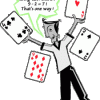
Fantastic Four: A Math Card Game
Source Institutions
This is a game that is sure to sharpen players' basic math skills. Players must use four randomly selected numbers to create an equation that equals a fifth number.
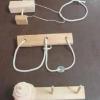
Topological Puzzles
Source Institutions
In this activity, learners construct three math puzzles out of simple materials like wood, string, and Styrofoam.
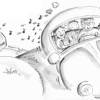
FAMILY MATH on the Go
Source Institutions
This assortment of mathematical games can be played while traveling.
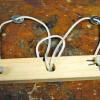
Two Washers
Source Institutions
In this activity, learners create a mind and math puzzle that requires a three-dimensional solution.
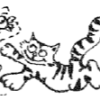
Cats and Canaries
Source Institutions
In this math puzzle game, learners work together to use algebraic reasoning and fun clues for solving word puzzles.
Stacking Dice
Source Institutions
In this math game, learners try to earn the most points by winning stacks of four dice. Learners practice number recognition and addition skills.
Number Flips
Source Institutions
In this math activity, learners play a number game to explore the relationships between numbers, combinations, and the concept of equivalency.
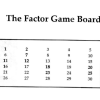
Number Systems and Number Theory: Factor Game
Source Institutions
In this math lesson, learners play a game to identify the properties of prime, composite, abundant, deficient and perfect numbers.
Frustrations with Fractions
Source Institutions
In this math activity, learners make a set of fraction cards to play a game that will help relieve their fraction frustrations.
Numbered Heads
Source Institutions
In this math activity, learners play a game and use a variety of strategies to solve a hidden number problem (or missing factor). Learners practice their number and operations skills.
Shape & Solid Exploration
Source Institutions
In this game, learners use clues to identify mystery shapes. Use everyday objects (like from the pantry) as the shapes.
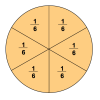
Number Sense and Computation: To Half or Half Not
Source Institutions
In this math lesson, learners use slices of bread and geoboards to explore several ways to divide a rectangle in half. Learners also identify equivalent fractions that represent one-half.

I Don't Think So!
Source Institutions
In this math activity, learners explore probability as they play a game. Learners will categorize everyday events as either impossible, possible or certain.

Is it a Fair Game?
Source Institutions
In this math activity, learners play two versions of a card game and decide what makes a game fair. Learners also practice addition and subtraction skills.
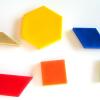
Building Fractions Game
Source Institutions
In this math lesson, learners investigate fractions by playing a game.
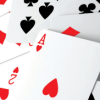
Odd Man Out
Source Institutions
In this math game (Page 14 of the Are You Game? PDF), learners determine the probability of getting an even versus an odd product using the numbers on a regular deck of cards.

Tossing Coins
Source Institutions
In this math game (Page 17 of the Are You Game? PDF), learners investigate probability by tossing coins.
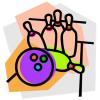
Strike 'em Down & Add 'em Up!
Source Institutions
In this activity, reuse two-liter bottles to create bowling pins. Learners practice math skills and develop a concept of verifying answers, while bowling and keeping score.
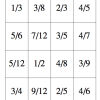
Comparing Fractions War Card Game
Source Institutions
In this math activity, learners practice comparing fractions.
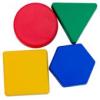
Copy Cats
Source Institutions
In this math activity, learners use what they know about shapes to copy a friend's hidden picture. Learners create a design out of pattern blocks and then hide their picture behind a screen.
